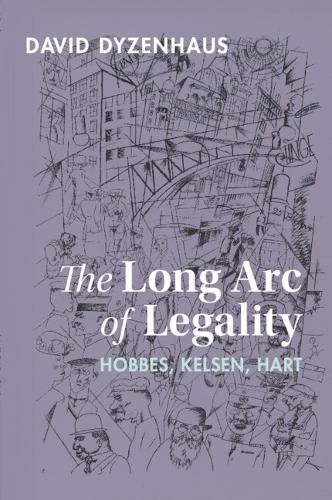Readings Newsletter
Become a Readings Member to make your shopping experience even easier.
Sign in or sign up for free!
You’re not far away from qualifying for FREE standard shipping within Australia
You’ve qualified for FREE standard shipping within Australia
The cart is loading…






The Long Arc of Legality breaks the current deadlock in philosophy of law between legal positivism and natural law by showing that any understanding of law as a matter of authority must account for the interaction of enacted law with fundamental principles of legality. This interaction conditions law's content so that officials have the moral resources to answer the legal subject's question, 'But, how can that be law for me?' David Dyzenhaus brings Thomas Hobbes and Hans Kelsen into a dialogue with H. L. A. Hart, showing that philosophy of law must work with the idea of legitimate authority and its basis in the social contract. He argues that the legality of international law and constitutional law are integral to the main tasks of philosophy of law, and that legal theory must attend both to the politics of legal space and to the way in which law provides us with a 'public conscience'.
$9.00 standard shipping within Australia
FREE standard shipping within Australia for orders over $100.00
Express & International shipping calculated at checkout
The Long Arc of Legality breaks the current deadlock in philosophy of law between legal positivism and natural law by showing that any understanding of law as a matter of authority must account for the interaction of enacted law with fundamental principles of legality. This interaction conditions law's content so that officials have the moral resources to answer the legal subject's question, 'But, how can that be law for me?' David Dyzenhaus brings Thomas Hobbes and Hans Kelsen into a dialogue with H. L. A. Hart, showing that philosophy of law must work with the idea of legitimate authority and its basis in the social contract. He argues that the legality of international law and constitutional law are integral to the main tasks of philosophy of law, and that legal theory must attend both to the politics of legal space and to the way in which law provides us with a 'public conscience'.